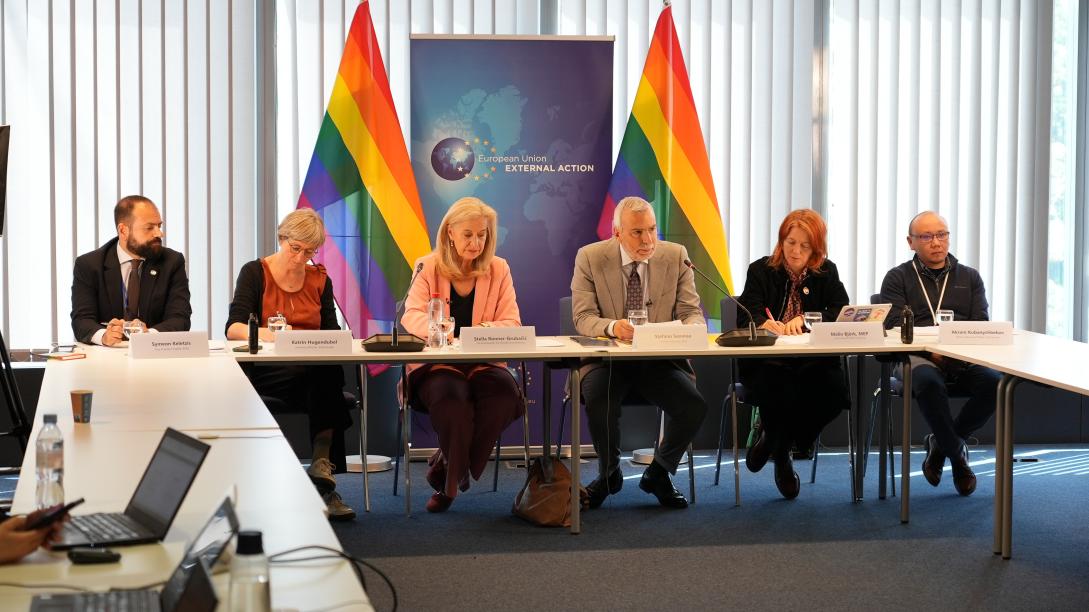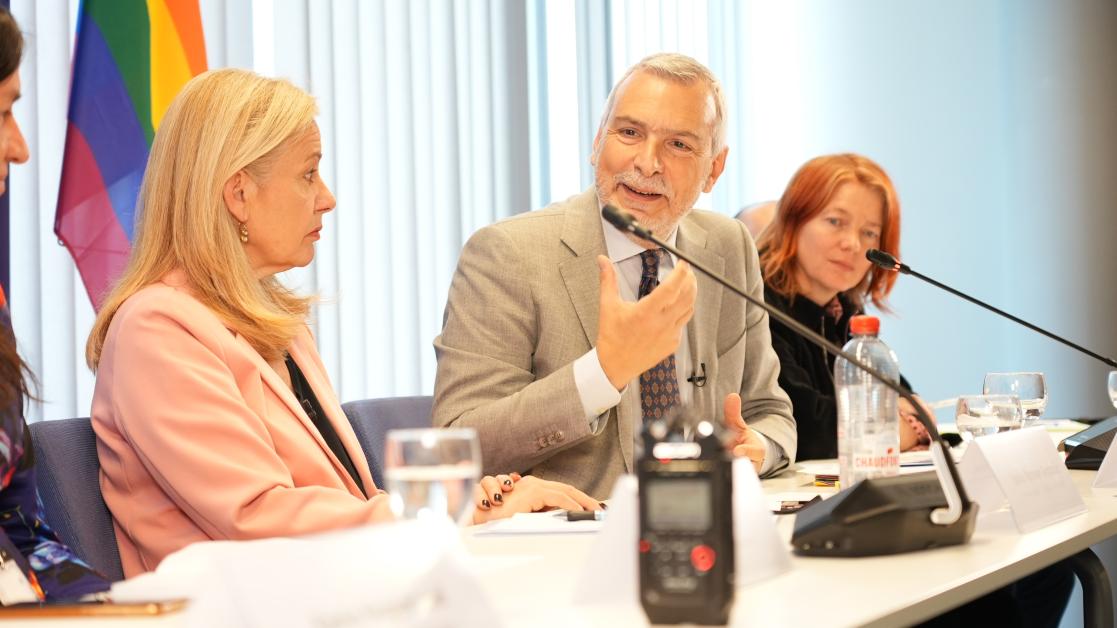IDAHOBIT: The EU listens… and acts

To mark this year’s IDAHOBIT, the EEAS organized a discussion focusing on the challenges that LGBTIQ+ persons face in the world, including the criminalisation of consensual same-sex relations. The event brought together guest speakers representing the European Parliament and the Council of Europe as well as a LGBTIQ+ activists and civil society organisations from the ILGA World and ILGA Europe network.
The discussion focused on trends and developments related to the discrimination of LGBTIQ+ persons that present challenges in different parts of the world, but also on good practices from other countries and regions. Still, 64 UN members criminalise same sex relations.
The discussion allowed for an in-depth exchange of views, stressing the universality of human rights and placing the discrimination of LGBTIQ+ persons in the broader geopolitical context. Many speakers addressed the effects and impact of discriminatory laws or anti-propaganda on the situation of LGBTIQ+ persons in the various geographical contexts.

MEP Malin Bjork (The Left), vice-chair of the LGBTI Intergroup, stressed that different institutions have different roles, but that synergy can be created when we act as one Union: parliamentary diplomacy can help in a country where negative developments in legislation are being observed.
According to Evgenia Giakoumopoulou (Head of SOGI unit, Council of Europe), promoting the rights of LGBTIQ+ persons to eliminate discrimination is not a threat to other people’s human rights, because it is not a “zero sum game, no one loses”.
The event also provided an opportunity to learn about good practices regarding the decriminalisation of consensual same-sex relationships. The examples of decriminalisation in the Eastern Caribbean and the ILGA decriminalisation programme were highlighted.

“It is great to see the EEAS taking important step to stronger integrate LGBTI rights in their work and to see the clear leadership commitment.” In her remarks, ILGA-Europe’s Advocacy Director Katrin Hugendubel underlined the importance of dialogue and the continuous cooperation of EEAS and the ilga associations around the world, reassuring ILGA-Europe’s duly support for EEAS’ way ahead.
The discussion also put in focus the important role of EU delegations around the world, to monitor national developments, work with civil society and flag trends. The EU Delegations to the UN, in New York and Geneva, highlighted the work carried out in the multilateral framework, and the challenges the EU experiences there, in terms of standard setting and maintaining a high level of ambition.
By better understanding the challenges and bottlenecks as well as the enabling factors, the EU will be better equipped to set up the strategy needed to be a true global voice for the human rights of LGBTIQ+ persons. Thus, the event can be seen as the start of a consultation process that may result in concrete steps to be taken when negative trends are observed, such as currently in Uganda and some other African countries, but also proposing ways to address negative developments in the preventive stage.

Concluding the discussion, Secretary General Sannino highlighted the need to use the available space, using all instruments available to support LGBTIQ+ persons while applying a multi-stakeholder approach that must always be adjusted to local circumstances. He also stressed the need to counter the anti-rights narrative:
Human rights are indivisible and equally important, without hierarchal order. Placing human rights in the centre of our policies, and ensure an even stronger global alliance with all our like-minded partners is the way forward.





